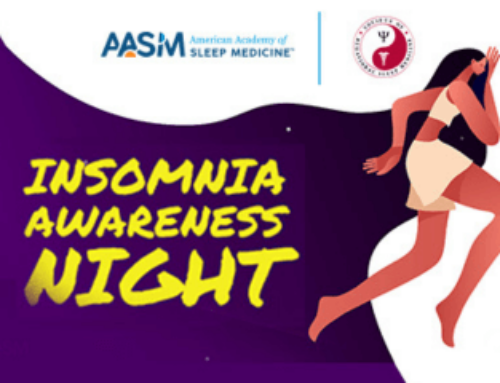WESTCHESTER, IL – A study in the April 15 issue of the Journal of Clinical Sleep Medicine shows that having a sleep disturbance is associated with clinically meaningful reductions in health-related quality of life, and the magnitude of this effect varies by race and sleep disorder.
Results indicate that physical health-related quality of life in African-Americans who snored frequently, had insomnia symptoms or reported excessive daytime sleepiness was significantly worse than in Caucasians. African-Americans with insomnia also had significantly more physical limitations than Hispanics. However, when mental health-related quality of life was evaluated, it was Hispanics with frequent snoring, insomnia symptoms or excessive daytime sleepiness who had significantly greater mental distress than Caucasians. African-Americans with insomnia also had significantly worse mental health than Caucasians.
“The study highlights the increased disparities among African- and Latino-Americans compared with Caucasians even in the sleep and health-related quality of life domain,” said lead author Carol M. Baldwin, PhD, RN, FAAN, Southwest Borderlands Scholar and director of the Center for World Health Promotion and Disease Prevention in the College of Nursing and Health Innovation at Arizona State University in Phoenix, Ariz.
The study involved a secondary analysis of data from the Sleep Heart Health Study, a multi-center study that recruited participants from seven regions of the U.S. Eighty-six percent of the 5,237 people in the current study were Caucasian, nine percent were African-American and five percent were Hispanic. The Hispanic participants were predominantly of Mexican heritage residing in Arizona, with a smaller number of Puerto-Rican participants from the New York cohort. All participants were 40 years of age or older, and their mean age was 63.5 years.
The presence of obstructive sleep apnea was detected by overnight, in-home polysomnography. Snoring and insomnia – defined as trouble falling asleep, staying asleep or waking too early – were assessed using the Sleep Habits Questionnaire. The Epworth Sleepiness Scale was used to evaluate daytime sleepiness.
Health-related quality of life was assessed with the physical and mental composite scales of the Medical Outcomes Study 36-item short form survey. According to the authors, low scores on the physical scale suggest limitations in self-care and physical activities, severe bodily pain and frequent tiredness. A low score on the mental scale indicates frequent psychological distress, as well as social and role disability due to emotional problems.
The study found that sleep disturbances were common, with 46 percent of people having at least mild sleep apnea, 34 percent reporting frequent snoring, 30 percent having insomnia symptoms and 25 percent reporting excessive daytime sleepiness. Frequent snoring was significantly more common among Hispanics (41 percent), and excessive daytime sleepiness was significantly more common among African-Americans (32 percent). There were no statistically significant differences in the distribution of obstructive sleep apnea or insomnia symptoms by race.
According to Baldwin, the study could help reduce health disparities and improve outcomes by advancing “tailored care” in sleep medicine.
“These findings support the need for sleep clinicians to use culturally-responsive sleep education, assessment and intervention approaches, as well as depression, anxiety and other relevant mood and socioeconomic-status measures,” she said.
The authors cautioned that the correlational nature of the study did not allow for an analysis of causality. Baldwin added that the causes of differences in health-related quality of life can be complex and may include such factors as lifestyle and activity patterns, diet, sleep architecture and access to health care.
However, the study suggests that the impact of sleep disorders on daily living and general well-being may be similar to that of other chronic conditions. The mean score profiles for health-related quality of life in people with sleep apnea and other sleep symptoms were similar to those that have been previously reported for patients with hypertension and type 2 diabetes.
The Journal of Clinical Sleep Medicine is published bimonthly and is the official publication of the American Academy of Sleep Medicine, a professional membership society that is the leader in setting standards and promoting excellence in sleep medicine health care, education and research.
For a copy of the study, “Sleep disturbances, quality of life, and ethnicity: the Sleep Heart Health Study,” or to arrange an interview with an AASM spokesperson, please contact AASM director of communications Kathleen McCann at 708-492-0930, ext. 9316, or kmccann@aasm.org.
###




